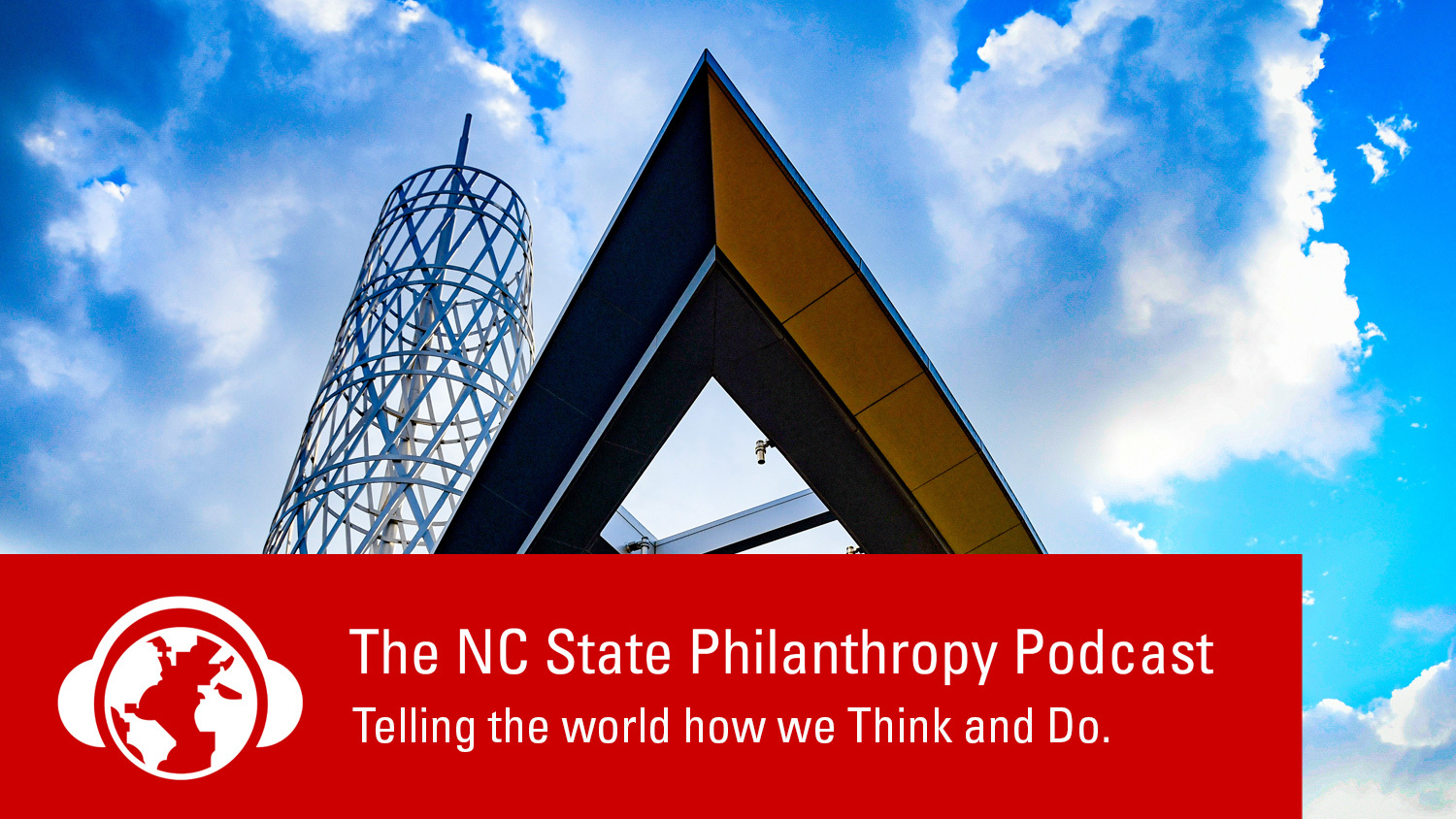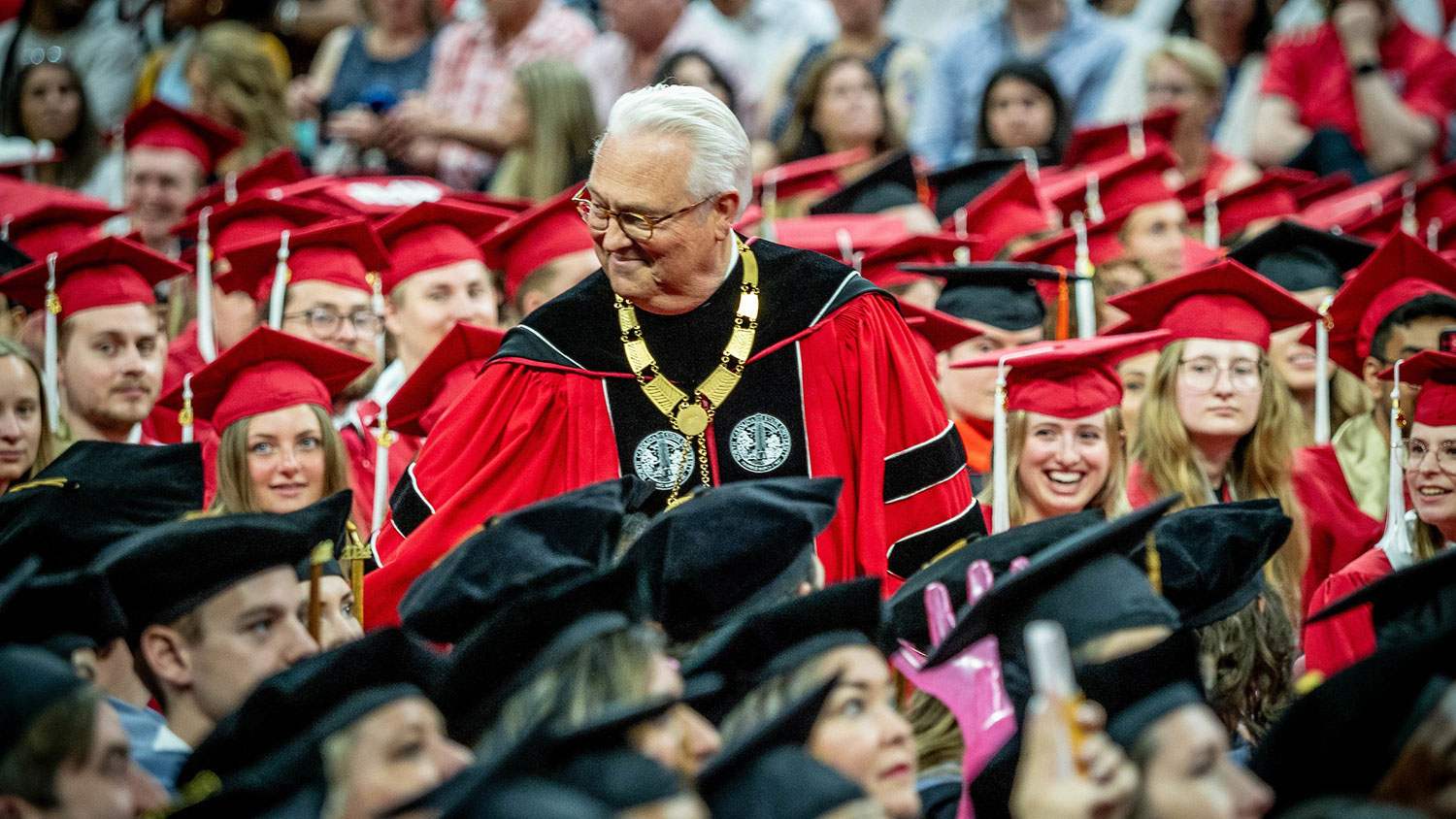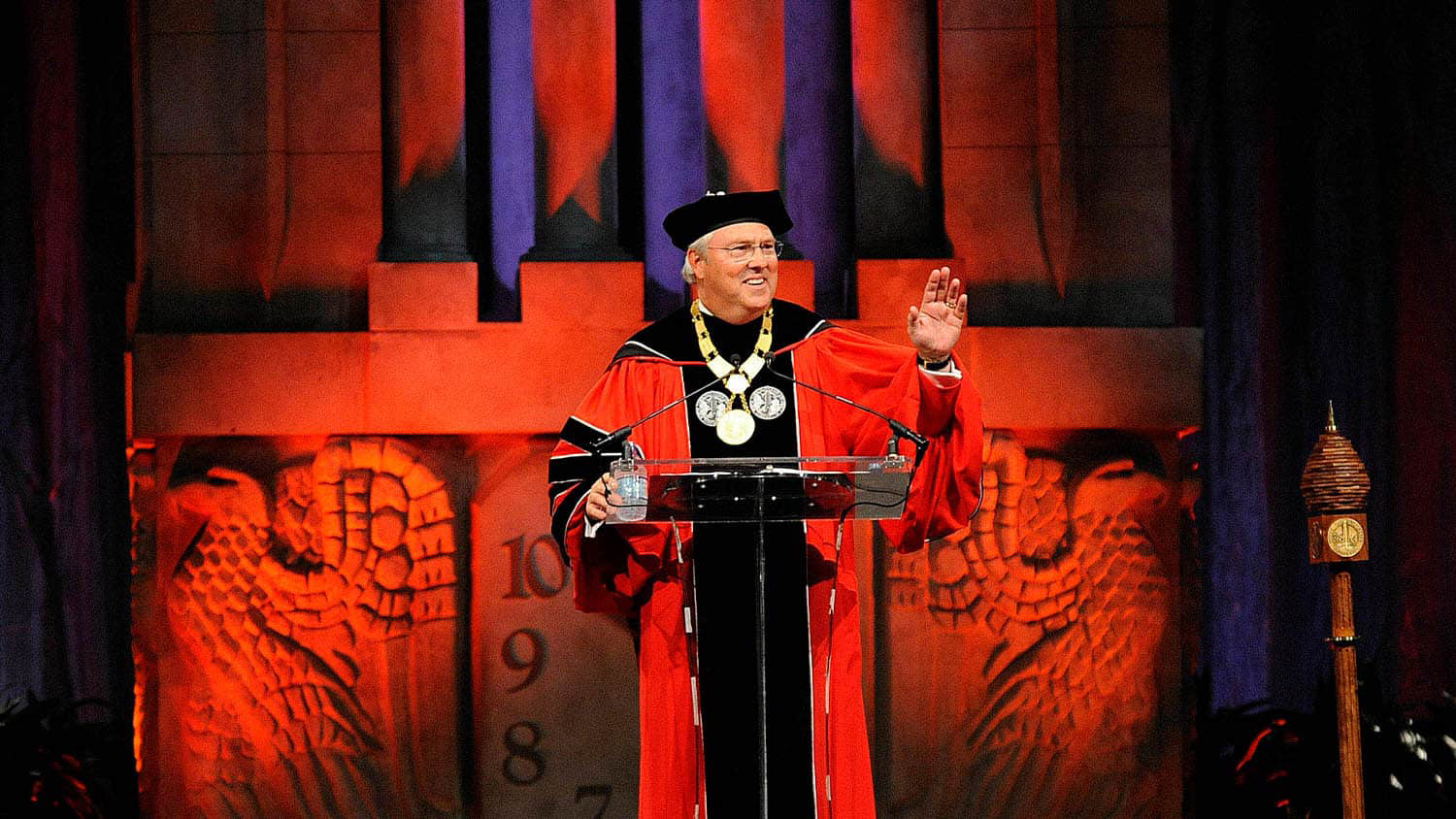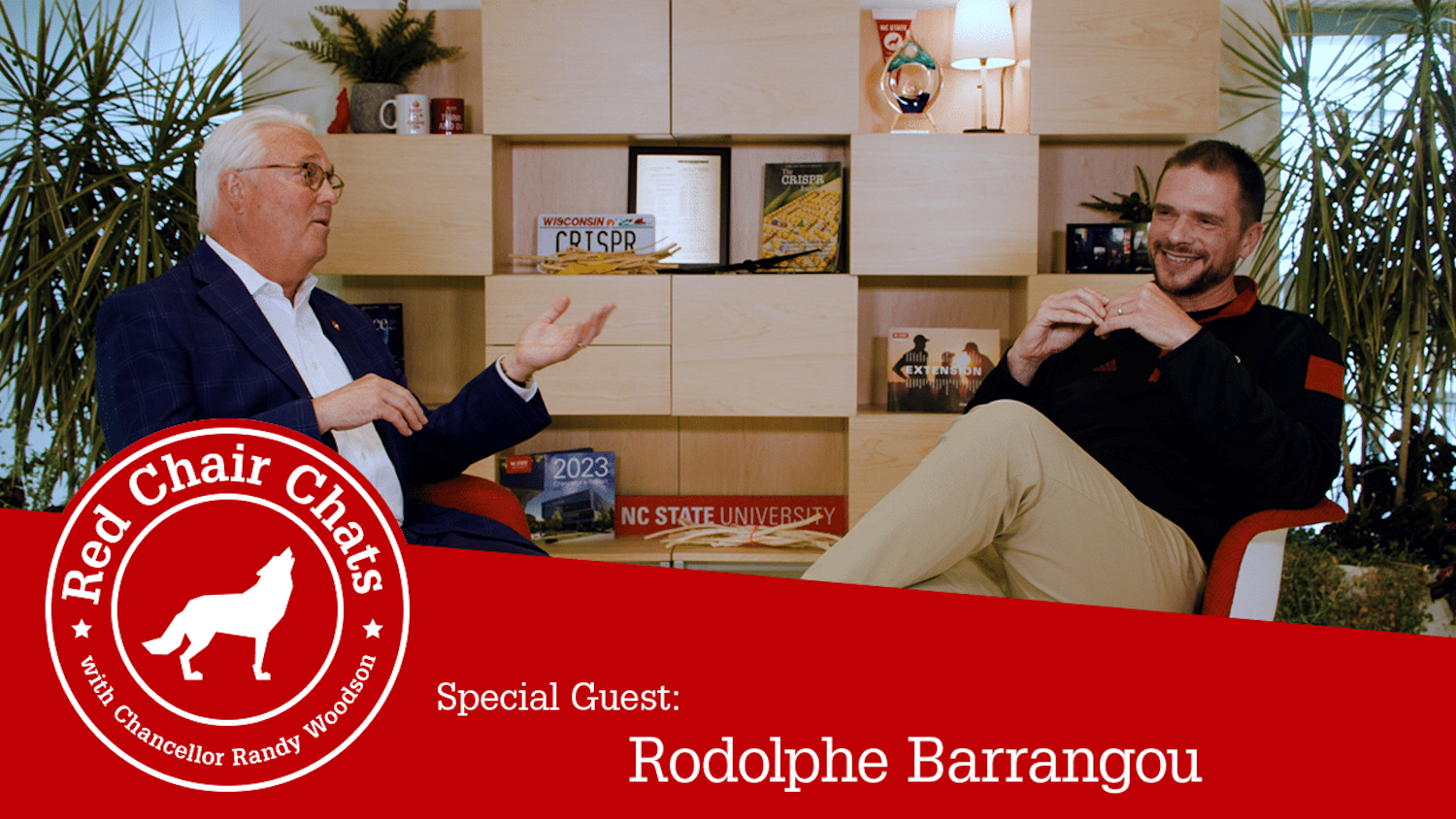On this episode of the NC State Philanthropy Podcast, we’re finishing our two-part talk with Kourosh Salamati about how the Caldwell Fellows program and other campus support systems have helped him succeed beyond his wildest dreams as a member of the Pack. Listeners will learn how a special stipend has enabled him to pursue not just his academic goals but also his personal passions; how he is taking time out of his already busy schedule to help his classmates and community; and what he plans to do after he graduates from NC State.
To listen to this and other episodes of the NC State Philanthropy Podcast, visit the Apple and Google podcast stores, Spotify and Stitcher. Be sure to also subscribe in order to receive new episodes as soon as they’re released. You can visit our podcast webpage at Podbean, too, for direct downloads. However you listen, please leave a comment and rating to let us know how we’re doing!
Transcript
Theme song: [00:00:01] Please listen carefully.
Taylor Pardue: [00:00:06] Welcome to the NC State Philanthropy Podcast, telling the world how we think and do the extraordinary through the support of our friends, alumni and more. I’m your host, Taylor Pardue. On this episode, we’re finishing our two-part conversation with Kourosh Salamati, a Caldwell Fellow who is truly making the most of his time with the Pack.
Taylor Pardue: [00:00:30] You’ve told us about getting into the program, but tell us a little bit about what all you’ve done as a Caldwell Fellow since then. What are some of the different, um, experiences, the different memories that you’ve made with these friends that you’ve, uh, found here on campus?
Kourosh Salamati: Yeah. Um, [00:01:00] so once one, gets admitted to the program. Um, the first ever, um, activity that I was involved in that, um, with, with the other, uh, Fellows was SATELLITE, which is a summer STEM camp, uh, tailored towards high school sophomores to learn more about STEM and, uh, what it looks like to go to college, um, with the hope that make them more [00:01:30] interested into pursuing a path and getting higher education. And, um, that was a lot of fun. The spring that I got into the program was when the pandemic started. So, that was the first time that we had the camp online. And although we didn’t get to come to campus and see the, um, campers in person and interact with them, still being able to interact with them and other Fellows over Zoom [00:02:00] was very fun. And, um, we were able to get closer together.
Kourosh Salamati: And so the fall after one gets into the program, there is a sophomore seminar, um, which, um, again, focuses a lot on that servant leadership, what it means and a part of it is to help a community through different, um, service groups that we have. [00:02:30] For example, I was a part of the open-door clinic service group, and we, um, we volunteered at the open-door clinic of Urban Ministries of Wake County, which is a nonprofit organization that, uh, helps provide, um, health services to those, um, who are not covered by any of the federal or government programs, um, through healthcare, but also cannot, um, provide their own private insurance. [00:03:00] And that doesn’t sound like, um, a, a, a big group of individuals, but it is actually a very big gap, and to be able to learn more about that and be able to help another organization, uh, with what their need to achieve their mission and provide health services to more individuals in need was very meaningful and something that I enjoyed a lot.
Kourosh Salamati: Um, some other [00:03:30] organizations were, or some other service groups, um, at least that I can remember off the top of my head where one that worked with Habitat for Humanity, um, there was one that worked on campus, um, and is called Vita Pack. And it, um, is tailored towards learning more about the story of, um, the Fellow faculty [00:04:00] and, um, people on campus that, um, work behind the scenes. And we otherwise wouldn’t get to know their story, which is a lot of people. And that is very interesting and personally very cool to me, to be able to learn more about somebody else that otherwise student have an opportunity to
Taylor Pardue: The timing is just unreal. Uh, it’s just so great for these programs [00:04:30] in general are great, but you really came along at the perfect time to be able to help with these, uh, different programs during the pandemic, too, just to really increase your efficacy.
Kourosh Salamati: Yeah. Um, our class was, um, we were, at the time we were a little bit upset ’cause …
Taylor Pardue: Sure.
Kourosh Salamati: … um, we didn’t get to have all the, uh, dinner seminars that all of the other classes before us had or anything like that. But at the same time, I think that was [00:05:00] a part of what made our class closer to together. ’Cause we had to try harder to hang out and get to know each other and also, um, work towards helping the community.
Taylor Pardue: I think that says a lot about the spirit of the different Caldwell Fellows, too, that they were able to overcome and not just be disappointed that their college experience wasn’t starting necessarily the way they had expected, but to not only rally and to have a good spirit about it themselves, but also [00:05:30] to reach out and to give to others at a time where they could have, you know, been upset and just been, um, dejected about that. But …
Kourosh Salamati: Yeah, um, that is, that’s of course, like because of, um, that support of the, um, program directors, um, ’cause without, without them like the program, wouldn’t be where it is now or, and also being able to have the seminars. Um, despite [00:06:00] the fact that after the first two weeks that fall, we went back to online again, um, being able to still, like, keep up the seminars and um, focus on them. That was very, um, meaningful, and not only the director, but also, uh, um, fellow upperclassmen, which were the TAs for each of the service groups that we were a part of. Um, ’cause, um, they also, they were the people who were our mentors [00:06:30] when we were working in all of these, uh, uh, smaller service groups to help us go through any problems that we had and help us to reflect better on them. ’Cause, as a part of being in the service group, um, we would have meetings where, uh, we had assignments about reflection on, uh, what we had learned through those experiences and how had that, um, had those experiences had helped us to grow and [00:07:00] learn more.
Taylor Pardue: So, Caldwell Fellows, and many other areas across campus, were, uh, benefited by our recent Think and Do the Extraordinary CCampaign that came to a close last, uh, December. You were actually a speaker at our final Red and White Night for the campaign, uh, back in October. Can you tell us a little bit about just, what was it like getting to talk to all those people and tell them how the campaign had benefited you?
Kourosh Salamati: Yes. Um, so first I was very honored when the, the director of the, uh, [00:07:30] program reached out to me and asked me if I wanted to share my experience of how the program and the generous donations of all the donators of the campaign, um, had impacted me. And I must say that the imposter syndrome was a very big thing for me at that time, ’cause I was thinking about the fact that there are so many amazing people that are doing a lot, both and the colorful was program. And I’m [00:08:00] sure in all of the other programs, um, around campus that benefit from these donations. Um, and I was very honored, um, to be able to share my personal experience. Um, the opportunity actually help me to rethink where I was in life and how much of what I had accomplished was because of other people that I previously hadn’t [00:08:30] thought about. So, being able to have that opportunity again, to first reflect on what was it that I had accomplished and be able to share that experience with others and let them know that it has been because of their support that they have been able to do all of these amazing things. Um, that was a very extraordinary experience. And one that, to this day, I’m grateful for.
Taylor Pardue: Thank you so much for participating. [00:09:00] We really were honored that you were able to join us.
Kourosh Salamati: Yeah. Thank you so much for the experience. Again, other ways that the program has helped me to, um, grow as a leader has been, um, through other opportunities, um, and activities that the program as a whole is involved in, um, which Shackathon is one of the major ones and um, we love the Caldwell shack. Um, and we are there strong every year, even during [00:09:30] pandemic when, um, there was no one on campus except for people who built the shacks, um, cargo shack was one of them. And um, for anyone that doesn’t know, um, …
Taylor Pardue: Yeah, what all is involved with the Shackathon?
Kourosh Salamati: Shackathon is a week-long event at NC State, um, during which student organizations build, uh, build temporary wooden shacks on the Brickyard to fundraise for Habitat for Humanity as well as, um, also promote [00:10:00] awareness about affordable housing issues in Raleigh. And, um, it has been a tradition for over 20 years to do that. Um, but also, um, at least for us students more that it’s an opportunity to come together, um, both as a program through Caldwell and also as a university and a wider community to help address an issue that affects thousands of our [00:10:30] neighbors. Um, for example, every year, we have, um, people who either donate their time, time through coming to the shack and, um, doing activities with us or, um, donate a lot of plants. We have a lot of, um, very kind people and, uh, organizations, nurseries that, um, donate us plants so that we can sell them and raise money for Habitat for Humanity or our own, um, [00:11:00] fellow classmates that, um, that help us build, um, or make bracelets and sell them as a sellable or different activities. So, it is really about community, both in the sense of all what’s coming together and also how helping the rest of the community by raising money to, um, address this issue.
Taylor Pardue: It really seems like a perfect fit for the Caldwell Fellow program, um, with the community [00:11:30] and the servant-leadership. So, there’s also a stipend involved with Caldwell Fellows, right?
Kourosh Salamati: Yes. Um, yes. So there is a stipend involved as a part of the program, um, that the purpose of which is to help one to, um, pursue their authentic self, whether that is, um, through doing an activity that will, that would help them grow personally or in a professional way, um, some activity that could, um, impact [00:12:00] the community. Um, …
Taylor Pardue: So, what did you use your stipend for and why?
Kourosh Salamati: I, um, so I used my stipend to buy a camera, um, ’cause I had been interested in photography for a very long time, like since, um, high school when I was back in Iran, but I never had the opportunity, um, or the funds to, um, afford the camera. So, once I got into the program, that was the perfect opportunity [00:12:30] for me to pursue that passion, as it was also the very beginning of the pandemic and I had a lot of downtime and the part of my stipend was to help local businesses, uh, with any photo shoots that they, uh, needed done. But since I, everything got shot down very quick, quickly after the pandemic hit, um, I wasn’t able to do that. However, I still was able to use my [00:13:00] camera and, uh, learn more about photography and, and grow more in a personal sense, despite the fact that I was not able to reach out to any businesses to help them.
Taylor Pardue: I think that’s probably my favorite, uh, aspect of the Caldwell Fellow program is it’s not just a scholarship. It’s not just saying here’s a way for you to come study your major and then graduate. It’s like you said, exploring your authentic self. It’s really trying to help you [00:13:30] figure out not just what you wanna do professionally, but also personally, um, with the rest of your life.
Kourosh Salamati: Yeah. And um, for me also part of that camera, um, and stipend was opening other doors to me since I still have the camera and I was able to actually use it for the selection team this year to, um, help the program itself by doing, for the program, um, with the other amazing team on the photography [00:14:00] team and we are working together and also, um, it encouraged me to start, um, a YouTube channel and make videos, um, learn more about video-editing applications and, in a sense, uh, one led me to another door and, um, it opened up a new, um, perspective to me.
Taylor Pardue: So, I’ve actually seen some of your YouTube videos. They are, from what I saw, they concentrate on student life [00:14:30] and helping other students, um, you know, make the most of their time on campus, too. Right?
Kourosh Salamati: Yeah. Um, yeah, but unfortunately, recently I haven’t been able to do much, um, video-editing as it takes a lot of time. And also now is the time for me to study for the MCATs and, um, as pursuing, uh, medical school as the next, uh, big milestone in my life that I want to achieve.
Taylor Pardue: Well, that’s the next thing I wanted to talk to you about. So, we mentioned earlier [00:15:00] that you were majoring in biochemistry and that you’re doing several minors, uh, and that you also took part in, in SATELLITE, through Caldwell Fellows to explore STEM-related, uh, topics. What is it that you’re, you’re actually studying toward? What is your ultimate, uh, postgraduate goal for a career?
Kourosh Salamati: Yeah, so, um, right now my main goal after graduating is to, um, pursue medical school and eventually become a doctor. Um, I have had the opportunity to, um, shadow doctors and also [00:15:30] do clinical, uh, uh, research at, um, at UNC Rex previously. And despite the fact that I have only been exposed to cardiology for the most part, um, I, I find it very rewarding to be able to help other people, um, through, um, their medical needs and be able to help the results of it and how, how it can impact their life in a positive way. So that is my main motivation for wanting to [00:16:00] become a doctor in addition to, of course, the interest in medicine and how the human body works. And, um, the human body is a very fascinating system that I personally, I’m learning more and more about every day through my biochemistry courses and also through research. Um, so yeah, that excites me, and that, that makes me want to learn more about it. So, that is why I also [00:16:30] would like to eventually, um, do research while practicing medicine and be able to practice medicine at a teaching Institute to be able to help, um, educate other students. And as, as aspiring doctors to become a doctor.
Taylor Pardue: So, between your classes and everything that you take part in with Caldwell Fellows, um, that’s a, a full plate right there, but you actually do a lot more on campus, too, right? Uh, several extracurriculars on top of everything [00:17:00] else.
Kourosh Salamati: Yes. So, one of the organizations that I’m involved with is the Iranian Student Association, or ISA, that helps, um, promote and keep the Iranian culture alive here in the Raleigh area. Um, we focus a lot on welcoming the students that come here from Iran every semester, um, most of which are graduate students actually that are leaving their families behind in Iran to come here, um, for a fresh [00:17:30] start. And so it is important to, for them to coming to a community is welcoming to them and that is supportive of them. And that is what we try to do through the activities that we have, um, happening monthly, as well as, um, the major holidays and celebrations that we host, um, with our other partners here in the Raleigh Triangle area. [00:18:00] I’m also involved with, um, like I mentioned, the PACK Promise, um, program as a scholar.
Kourosh Salamati: And through that, I got to learn about the TRIO collegiate programs, which, um, is a program that has helped me a lot through coaching and, um, giving me opportunities to learn more about what I want to do in the future. One of the examples that comes to my mind [00:18:30] as one of the very recent workshops that the program had about designing your life, um, which helped me decide if I didn’t wanna, or couldn’t go to medical school, what could be alternatives to that for me, which personally for me, it came down to if medical school didn’t work out the first time I would do research and try again later, or if money wasn’t the problem, I would, [00:19:00] uh, pursue YouTube and, um, become a content creator. I also recently got elected as the public relations officer for the biochemistry club here and the, um, and the biochemistry program at NC State, um, which that was also very important to me, um, because of the struggle that I had in the past and, and making connections to other people and being able to [00:19:30] see how that person experience has transitioned me into someone very social and be able to use those skills to, um, help other student organizations and clubs on campus, too.
Taylor Pardue: Thank you so much for coming out and talking to us, Kourosh, and just telling us a little bit about your experience with the Pack. Just as sort of a wrap-up question, what have been your, uh, your favorite things about NC State so far?
Kourosh Salamati: Yeah. So although it might not be the most unique [00:20:00] answer, um, I will still emphasize the fact that the community has been one of the, one of my most, um, favorite things about, um, being a part of the Wolfpack. Some of the examples that I can think of is, um, again, how my work-study supervisor pushed me to, um, think more about applying for the Caldwell Fellows program or even how one of my, um, professors, um, my English professor, helped [00:20:30] me with, um, with my grammar when I was, um, writing English stipend also in addition to the community, um, I cannot forget about the fact that I was a part of the Wolfpack before I decided to go to, as my sister had studied and, uh, worked here for a period of time. And so did, uh, my brother-in-law and lastly, um, I, I have to say, red [00:21:00] and white are just like the best colors for a school and also the bricks. They give so much character to the campus. All of these small things just add to the experience of being a part of the Wolfpack and attending NC State.
Taylor Pardue: That sounds great. Thank you again so much, Kourosh, and, uh, all the best as you finish up your degrees. And afterwards.
Kourosh Salamati: Thank you so much for having me again, Taylor. It has been a pleasure.
Taylor Pardue: [00:21:30] For more information on the Caldwell Fellow program, our Think and Do the Extraordinary Campaign and other examples of NC State philanthropy, please visit giving.ncsu.edu. If you’d like to hear even more stories of Wolfpack success, please subscribe to the NC State Philanthropy Podcast today in the Apple and Google podcast stores, on Spotify or through Stitcher. Be sure to leave us a comment and rating as well to let us know how we’re doing. Thanks for listening, and as always, [00:22:00] go Pack.



